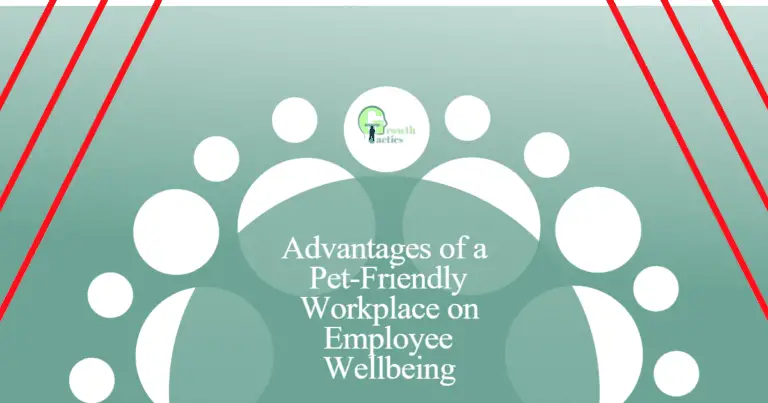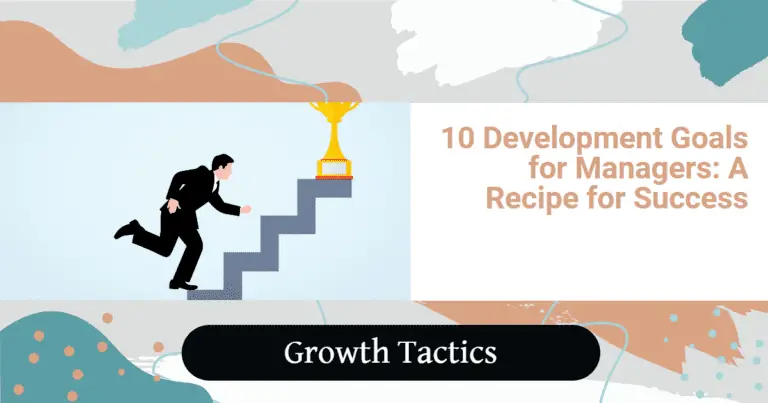Picture this: It’s your first day as a new manager. Your heart’s racing, your palms are sweaty, and you’re wondering, “How on earth do I talk to my team?” Don’t worry, I’ve been there too. Communication is the heartbeat of great leadership, but many new managers and even some not-so-new managers struggle to find their voice.
In this article, I’ll share 7 communication skills for new managers to help you connect with your team, boost engagement, and become the leader you’ve always wanted to be. Ready to transform your workplace? Let’s get started!
Jump To Section
Skill #1: Active Listening: The Foundation of Understanding
I remember when I first became a manager, I thought I was a great listener. Boy, was I wrong! I quickly learned that hearing and listening are two very different things.
Why active listening matters
Active listening helps you really understand what your team is saying. Not just their words, but their feelings too. When you listen actively, you show your employees that you value them. This builds trust and makes your team feel heard.
I’ve seen firsthand how active listening can turn a struggling team into a thriving one. It’s not just about hearing problems; it’s about understanding the people behind those problems.
Tips for becoming a better listener
Here are some tricks I’ve picked up along the way:
- Focus on the speaker. Put your phone away and give them your full attention.
- Use body language. Nod and make eye contact to show you’re engaged.
- Don’t interrupt. Let them finish their thoughts before you jump in.
- Ask questions. This shows you’re trying to understand.
- Repeat back what you’ve heard. It helps ensure you’ve got it right.
How it improves employee engagement
When you really listen to your team, magic happens. Employees feel valued and understood. They’re more likely to share ideas and take risks. I’ve seen quiet team members become vocal contributors just because they felt heard.
Active listening also helps you catch problems early. You’ll notice when someone’s frustrated or stuck before it becomes a big issue.
In my experience, teams with managers who listen well are happier and more productive. They work better together and come up with creative solutions.
So, give it a try. The next time you’re talking with a team member, focus on really listening. You might be surprised at what you learn and how it changes your team’s dynamic. Great leadership starts with great listening!
Skill #2: Clear and Concise Messaging: Say What You Mean
I’ve learned the hard way that clear communication can make or break a team. Let me share what I’ve discovered about saying exactly what you mean.
The importance of clarity in communication
When you’re clear, people understand you right away. This saves time and prevents mistakes. I once had a team project fail because I wasn’t clear about who was doing what. Now, I always make sure everyone knows their role.
Being clear also shows respect. It tells people you value their time. When you’re clear, you’re saying, “I care about you understanding me.”
Techniques for crafting clear messages
Here are some tricks I use to keep my messages crystal clear:
- Keep it simple. Use short words and sentences.
- Be specific. Instead of “soon,” say “by Friday at 3 PM.”
- Use examples. They help people picture what you mean.
- Ask for feedback. Say, “Does this make sense to you?”
- Use “I” statements. “I think” or “I need” is clearer than “One might think.”
Remember, what’s clear to you might not be clear to others. Always put yourself in their shoes.
How to avoid common communication pitfalls
We all make mistakes when we communicate. Here’s how I avoid the most common ones:
- Don’t assume. If you’re not sure, ask.
- Avoid jargon. Not everyone knows industry terms.
- Be careful with humor. It can be misunderstood.
- Don’t overload. Give information in chunks.
- Listen actively. Communication goes both ways.
Clear communication isn’t always easy, but it’s worth it. It builds trust, saves time, and helps everyone succeed. Try these tips and see how they work for you.
Skill #3: Non-Verbal Communication: Your Body Speaks Volumes
I’ve learned that what we don’t say can be just as important as what we do say. Let me share some insights about body language that have helped me become a better leader.
Understanding body language in the workplace
Your body speaks even when you’re quiet. I once had a team member who always crossed her arms during meetings. I thought she was angry, but she was just cold! That taught me not to jump to conclusions.
In the workplace, watch for these common signals:
- Posture: Sitting up straight shows confidence.
- Eye contact: Looking at people shows you’re listening.
- Facial expressions: A smile can make others feel welcome.
Remember, everyone’s different. What’s normal for one person might not be for another.
Using non-verbal cues to reinforce your message
Your body can help you get your point across. I use these tricks:
- Stand tall when I’m speaking to a group. It helps me feel confident.
- Use hand gestures to explain ideas. It makes my words clearer.
- Nod when I’m listening. It shows I’m paying attention.
Try these out and see what works for you. The key is to be natural and true to yourself.
Reading your team members’ body language
Watching how others move can tell you a lot. Here’s what I look for:
- Are they leaning in? They might be interested.
- Do they look away a lot? They could be distracted or uncomfortable.
- Are their arms crossed? They might be defensive or just cold!
Don’t assume you know what someone’s thinking. If you’re not sure, just ask. It’s always better to check than to guess wrong.
Understanding body language can make you a better leader and team player. It helps you connect with others and avoid misunderstandings. Give these ideas a try and see how they work for you. Remember, everyone communicates differently. The more you learn, the better you’ll understand your team.
Skill #4: Empathy: Walking in Your Employees’ Shoes
I’ve learned that being a good manager isn’t just about giving orders. It’s about understanding your team. Let me share why empathy matters and how it can make you a better leader.
Why empathy is crucial for new managers
When I first became a manager, I thought I had to be tough all the time. But that is just not true. Empathy helps you:
- Understand why people do what they do
- Build trust with your team
- Solve problems before they get big
Empathy means seeing things from your employees’ point of view. It’s not about being soft. It’s about being smart.
How to develop and show empathy
Becoming more empathetic takes practice. Here’s what works for me:
- Listen more than you talk. Really hear what people are saying.
- Ask questions. Be curious about your team’s experiences.
- Put yourself in their shoes. Think, “How would I feel in this situation?”
- Show that you care. A simple “How are you doing?” can go a long way.
Remember, everyone is fighting their own battles. Be kind and patient.
The impact of empathy on team dynamics
I’ve seen empathy change teams for the better. Here’s what happens:
- People feel valued. They work harder and stay longer.
- Communication improves. People aren’t afraid to speak up.
- Problems get solved faster. Everyone works together better.
I once had an employee who was always late. Instead of getting mad, I asked why. Turns out, he was caring for a sick parent. We found a solution that worked for everyone.
Empathy isn’t always easy, but it’s worth it. It makes you a better leader and your team stronger. Try these ideas and see what works for you. Remember, every person on your team is unique. Treat them that way, and watch your team thrive!
Skill #5: Feedback: The Art of Constructive Conversation
I’ve learned that feedback is like water for plants, it helps us grow. Let me share some tips on how to use feedback to make your team stronger.
The importance of regular feedback
Feedback shouldn’t be a once-a-year thing. It’s best when it happens often. Here’s why:
- It keeps everyone on track
- It prevents small issues from becoming big problems
- Also, it shows you care about your team’s growth
I used to wait for annual reviews to give feedback. Now, I do it all the time, good and bad. It’s made a huge difference in how my team works together.
How to give and receive feedback effectively
Giving feedback can be tricky. Here’s what works for me:
- Be specific. Don’t just say “Good job.” Say what was good and why.
- Focus on actions, not personality. Talk about what someone did, not who they are.
- Be kind, but honest. Sugar-coating doesn’t help anyone.
Receiving feedback can be hard too. Try to:
- Listen without getting defensive
- Ask questions to understand better
- Thank the person for their input
I once got tough feedback about my communication style. It stung, but I listened. It helped me become a better leader.
Using feedback to drive personal and team growth
Feedback isn’t just about fixing problems. It’s about getting better. Use it to:
- Set goals for yourself and your team
- Celebrate wins and learn from mistakes
- Build a culture of continuous improvement
I encourage my team to give each other feedback. It’s made us stronger and more open with each other.
Remember, feedback is a two-way street. Give it and ask for it. It might feel awkward at first, but it gets easier with practice. The more you do it, the better you and your team will become. Give it a try and see how it works for you!
Skill #6: Adaptability: Tailoring Your Communication Style
I’ve learned that one size doesn’t fit all when it comes to communication. Let me share how adapting your style can make you a better leader.
Understanding different communication preferences
People are like fingerprints, each one is unique. Some like to talk things out, while others prefer to write. Here’s what I’ve noticed:
- Visual learners love charts and diagrams
- Auditory folks prefer discussions
- Hands-on people want to try things out
I once had a team member who seemed uninterested in our meetings. Turns out, she just needed more visual aids. When I started using more graphs, she became our top performer!
How to adapt your style for various team members
Being flexible in how you communicate is key. Here’s what works for me:
- Watch and listen. Pay attention to how your team members express themselves.
- Ask questions. Find out how they like to receive information.
- Mix it up. Use different methods – emails, chats, face-to-face talks.
- Be patient. It might take time to find what works best.
Remember, it’s not about changing who you are. It’s about being the best leader you can be for each person on your team.
The benefits of flexible communication
When you adapt your style, amazing things happen:
- People understand you better
- Your team feels more valued
- Work gets done faster and with fewer mistakes
I used to stick to one way of communicating. But when I started to adapt, I saw my team’s productivity soar.
Flexible communication isn’t always easy. It takes practice and patience. But trust me, it’s worth it. Your team will appreciate your effort, and you’ll see better results. Give it a try and see how it works for you. Remember, every conversation is a chance to connect and grow together!
Skill #7: Open-Door Policy: Fostering a Culture of Communication
I’ve learned that an open-door policy can transform a workplace. Let me share how it’s made a difference in my leadership journey.
Creating an environment where employees feel heard
An open-door policy isn’t just about keeping your office door open. It’s about being open to ideas and concerns. Here’s what I do:
- I make time for impromptu chats
- I listen more than I talk
- Furthermore, I thank people for sharing, even if it’s tough feedback
I remember when a shy team member came to me with an idea. Because I was open and welcoming, her suggestion ended up saving our team so much wasted time. Everyone has something valuable to offer if we just listen.
Balancing availability with productivity
Being available doesn’t mean you can’t get your own work done. Here’s how I manage:
- Set “open door” hours each day
- Use a simple sign to show when you’re free to talk
- Teach your team to respect each other’s focus time
I used to feel overwhelmed trying to be available all the time. Now, I have a balance that works for everyone.
The impact on employee engagement and trust
An open-door policy does wonders for your team. Here’s what I’ve seen:
- People feel more valued
- Problems get solved faster
- There’s more trust between managers and employees
When I first started this policy, I was amazed at how much more engaged my team became. They started coming up with great ideas and solving problems on their own.
Remember, an open-door policy is about more than just the door. It’s about creating a culture where everyone feels they can speak up. It might take some getting used to, but the benefits are huge. Give it a try and see how it changes your team. You might be surprised at what you learn when you’re truly open to listening!
Conclusion
Remember, becoming a great communicator isn’t about perfection, it’s about progress. As you put these skills into practice, you’ll find your own voice as a new manager. Your team will feel more connected, engaged, and ready to tackle any challenge.
So, take that first step today. Listen more actively, speak more clearly, or simply ask a team member how they’re doing. Every small action builds your communication toolkit and brings you closer to being the manager your team needs. You’ve got this!
FAQ
Q: What are the essential communication skills for managers?
A: The essential communication skills for managers include active listening, clear verbal communication, effective written communication, adaptability, empathy, non-verbal communication, and feedback skills. These skills help managers communicate effectively with their teams and ensure a positive work environment.
Q: Why do managers need strong communication skills?
A: Strong communication skills are crucial for managers because they enable them to convey information clearly, motivate their teams, and address issues effectively. Managers also need to communicate important objectives and deadlines to ensure the company’s success.
Q: How can new managers improve their communication skills?
A: New managers can improve their communication skills by seeking feedback, practicing active listening, attending workshops on effective communication, and observing experienced managers. Additionally, implementing communication tips such as being clear and concise can enhance their effectiveness.
Q: What role does verbal communication play in effective communication for managers?
A: Verbal communication plays a significant role in effective communication for managers as it allows them to articulate ideas, provide instructions, and engage with their teams. Managers need to use clear language and adjust their tone to suit the context and audience.
Q: How can written communication skills benefit a manager?
A: Written communication skills benefit a manager by enabling them to document important information, share updates, and send clear instructions. Effective written communication helps avoid misunderstandings and ensures that all team members are on the same page.
Q: What are some communication tips for managers to enhance team collaboration?
A: Some communication tips for managers to enhance team collaboration include fostering an open-door policy, encouraging team members to share their ideas, holding regular meetings, and using collaborative tools. These strategies help improve communication and promote a collaborative work environment.
Q: How does effective communication impact a manager’s ability to lead?
A: Effective communication impacts a manager’s ability to lead by building trust, fostering engagement, and facilitating clear understanding among team members. Strong communication skills enable managers to share their vision and inspire their teams to achieve shared goals.
Q: Why is it important for managers to adapt their communication style?
A: It’s important for managers to adapt their communication style to meet the needs of different team members and situations. By being flexible in their approach, managers can ensure that their messages are understood and that they can connect with diverse personalities effectively.
Q: How can managers measure the effectiveness of their communication?
A: Managers can measure the effectiveness of their communication through feedback surveys, one-on-one check-ins, and observing team performance. Additionally, assessing how well team members understand objectives and deadlines can provide insights into communication effectiveness.
Q: What are the consequences of poor communication in management?
A: The consequences of poor communication in management can include misunderstandings, decreased morale, lower productivity, and increased turnover. When managers fail to communicate effectively, it can lead to confusion regarding roles and responsibilities, ultimately affecting the company’s success.








